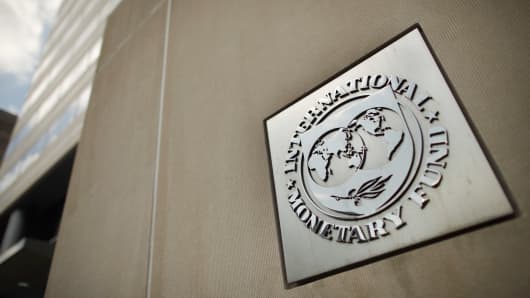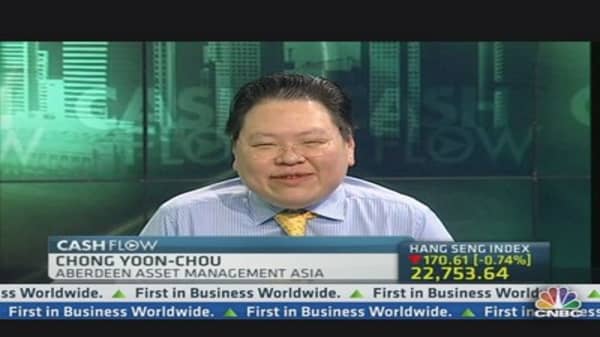The International Monetary Fund (IMF) said on Wednesday that China should deliver fiscal stimulus if economic growth falls below the IMF's forecast of 7.75 percent this year. However, analysts don't think this may be the right prescription for the world's second biggest economy.
The IMF said it had lowered its growth forecast for China from 8 percent because of weak global economic growth and exports. It recommended fiscal stimulus if growth slows further.
The current debate raging over China's economy goes like this: should Beijing act now and boost a slowing economy or hold back and allow a restructuring in the economy, that is positive for the country's long-term growth outlook but implies a slowdown, to take hold.
"Is the IMF's advice the right one? It's almost like the IMF is asking China to do a global duty, but at the moment there's a lot of debate on getting the right kind of growth," Chong Yoon Chou, investment director at Aberdeen Asset Management, told CNBC Asia's "Cash Flow."
"It's not about the number, but the type of growth that they [China's policymakers] want. It's not about building highways and airports as in the past, it's about developing consumer spending and other parts of the economy," he added, referring to a drive by Beijing to rebalance its economy away from investment and exports to consumption and the services sector.





